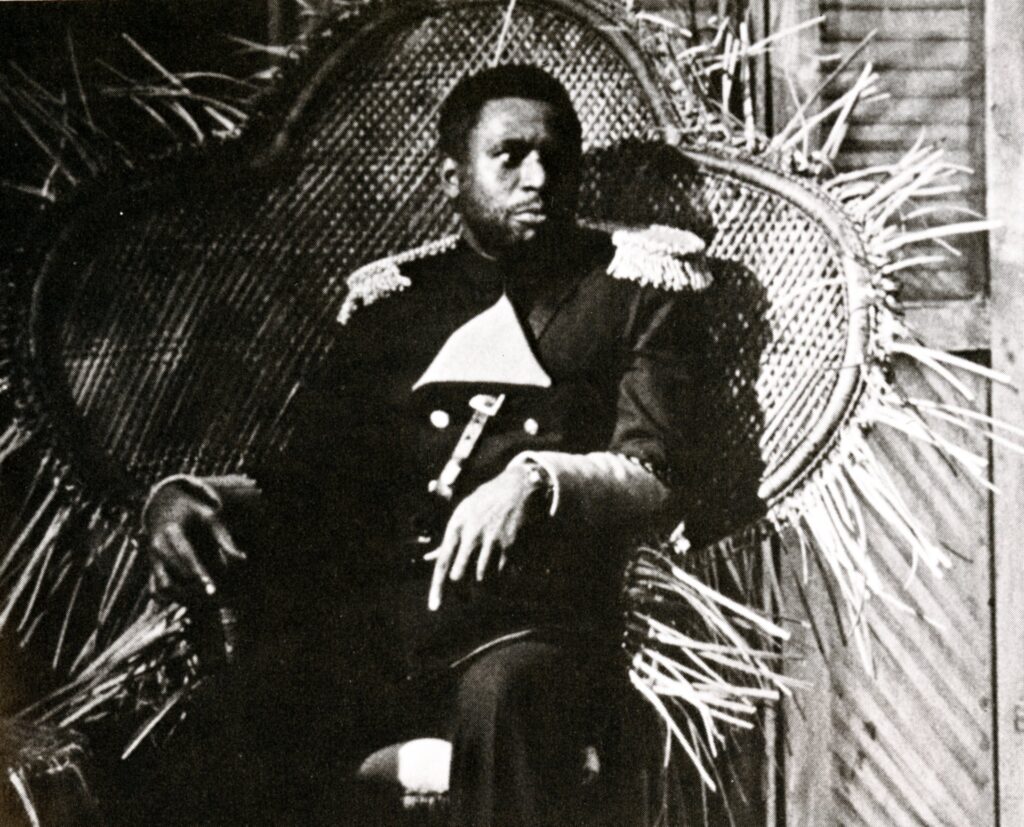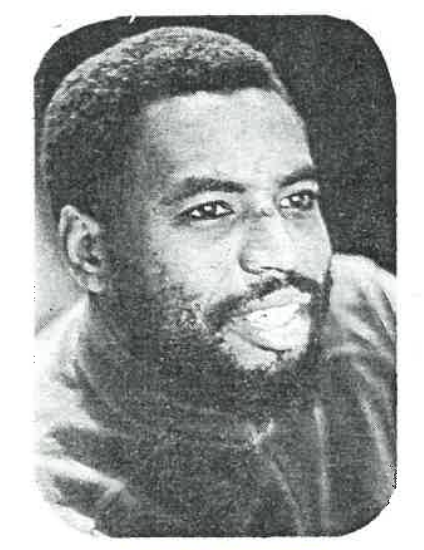Black History Month: James Spruill Founded Important Black Theater Company

To celebrate Black History Month, Emerson Today will highlight influential Black faculty members who have elevated their respective fields and society at large.
When James Spruill began to teach Dramatic Arts at Emerson in 1971, he had already founded an influential Black theatre company in Boston, and acted in plays with future Academy Award winners.
Spruill co-founded the New African Company (NAC) in 1968 with Gustave Johnson. NAC was named after the African Grove Theatre of New York City, which was founded in 1821, and was the first professional Black theatre company in the country. NAC continues to produce plays today.
“There must be a black theater for the black community, our own voices in our own playwrights, and the more black rage the better,’’ Spruill told Boston Globe theatre critic Kevin Kelly in October 1968, according to Spruill’s 2011 obituary in the Globe.
NAC was unique as it brought plays highlighting the Black experience to white audiences, and presented professional acting to Black audiences who might not ever attend Theater District performances.
“We are building a theater that attracts people who are not regular theater-goers,’’ he told the Globe in 1970, according to his obituary. “We are fighting dehumanization by TV, movies, and commercial theater.’’
Outspoken about topics such as race and civil rights, Spruill began hosting WGBH radio’s Say Brother in 1968, which later became Basic Black.
Spruill grew up in Baltimore attending segregated schools, and then went to Goddard College in Vermont on a scholarship. He enrolled at Boston University in 1968 in a master of fine arts program in directing, and became the first to be awarded the university’s Martin Luther King Jr. Fellowship for a graduate student.
He attended BU while teaching at Emerson, and received his BU degree in 1975. The next year, he was hired to teach on the faculty of BU’s College of Fine Arts, where he remained until retiring in 2006.

Spruill taught Dramatic Arts at Emerson from 1970 to 1976 as an instructor and then assistant professor. He started his family’s Emerson College lineage, as his son, filmmaker Robert Patton-Spruill, taught at Emerson as affiliated faculty and senior director-in-residence from 2007 to 2020. Patton-Spruill’s child, Al, earned an undergraduate degree in Media Arts Production from Emerson in 2020.
Like his father, Patton-Spruill was an influential educator at Emerson and accomplished filmmaker.
Spriull also acted in his son’s films, Squeeze and Body Count.
“My dad had an incredibly deep voice,’’ said Patton-Spruill to the Globe. “Imagine James Earl Jones, maybe not quite as deep, and perfect English. There was no such thing as a Boston accent in my house.’’
He said his father was a true method actor.
“He was there to feel it, and he felt it through the performance,” said Patton-Spruill. “He was as real as it could be and would come off the stage so drenched with sweat from the lights and the energy. He wasn’t the biggest fan of movie acting at all, but on stage, he would kill himself like a game-day football player.’’
James Spruill’s early acting career included performing in Morgan Freeman’s first play in New York City in the 1960s. Freeman couldn’t recall the play, but did remember Spruill’s commitment to his role, according to his obituary.
While teaching at Emerson, he acted in other plays, starring in the Boston production of The Basic Training of Pavlo Hummel with a young Al Pacino in 1972. He also acted in several Emerson Theatre Company productions, including Machiavelli’s Mandragola, John Arden’s Live Like Pigs, and Europides’ Trojan Women, according to Emerson Archives and Special Collections.
He was an influential teacher at Boston University, where he taught a young Jason Alexander, and starred with the future Seinfeld star in a 1980 school production of Othello. He also acted in Steven Spielberg’s Amistad in 1997.
But his passion was for the stage, where he exhibited remarkable acting range, wrote critic Kay Bourne for The Bay State Banner.
Categories